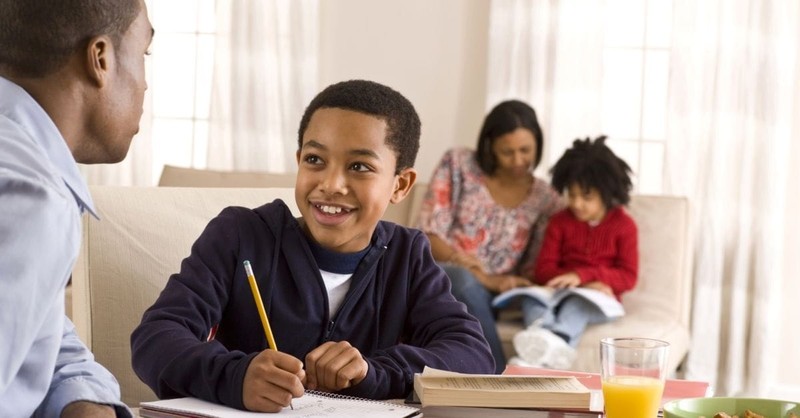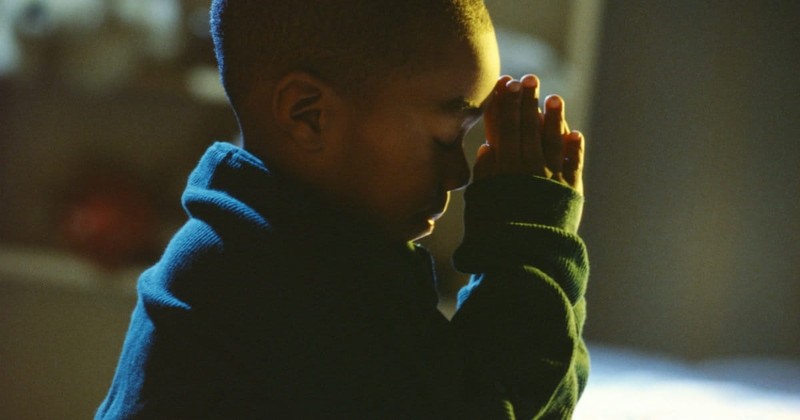
Voices shout. Doors slam. Mom sighs. It’s time to referee again. Why can’t they get along? Why is it so hard for them to like each other? I didn’t expect the personality differences and innate conflicts between introverts and extroverts. It’s been a bumpy road including slammed doors, raised voices, and lots of sighs.
The family is complex and can slide from dynamic to dysfunction. It's easy to treat our friends better than our families. And we expect more from our family members than we do ourselves or our friends. Friends get our best behavior. Family gets our junk because we do everyday life with them through the ups and downs.
However, it's possible to create an environment that breeds friendship among your children. The following principles help.
Image Credit: Thinkstock.com

1. Respect
Teach your kids to respect one another’s bodies, spaces and belongings. Ask first, don’t take. Use words like please and thank-you from small requests to large requests. Honor each with words and action. Think of ways to bless each other. These small measures of respect add up to a lifetime of siblings feeling united.
“How good and pleasant it is when brothers dwell in unity.” Psalm 33:1
Image Credit: Thinkstock.com

2. Celebrate
Celebrate individuality by refusing to compare children. Diversity is a blessing even if it’s difficult. God made your child on purpose, for a purpose. It’s up to you to help your child figure that out. Comparing your children to each other erodes their God-given identity and promotes sibling rivalry.
Children can sense when they are being compared. Give your child the radical gift of knowing he or she is cherished for exactly how God made them.
Image Credit: Thinkstock.com

3. Vision
Your family can be a witness to the world of Christ’s love. Each member needs to learn how to love one another well because the family is bigger than the individual. As a unit, the family celebrates the wins and grieves the losses together. If we can figure out how to love one another well, we will better love the unchurched, the unloveable, and those who reject Christ’s message. That’s a vision worth striving for.
Image Credit: Thinkstock.com

4. Christ
It’s through an individual relationship with Christ that our love overflows. Point your kids to their need for Christ as their Savior. Show them that God’s Word is the lens through which their actions and speech flow. When they make Jesus their Lord, it's easier to love and get along with one another. “Now concerning brotherly love, you have no need for anyone to write you, for you yourselves have been taught by God to love one another.” 1 Thessalonians 4:9
Image Credit: Thinkstock.com

5. Time
Declare distraction free zones in your days or weeks. This encourages face-to-face interaction with one another. Electronic devices have benefits, but they can become substitutes for real relationships. Encourage your kids to play games or to linger over dessert and hot cocoa. It might feel stilted at first, but as your family gets accustomed to talking to each other, it gets easier.
You will model this best – be willing to put your phone down, turn off the TV and get outside with your children, or join them in a group activity like a puzzle or board game.
Image Credit: Thinkstock.com

6. Sacrifice
Living together requires sacrifice and support. Especially when siblings don’t all like the same things. It means doing things another person likes because you love that person. Relationships grow strong through sacrifice, not selfishness. Encourage brothers and sisters to sacrifice for each other.
Sometimes this looks like making sure you all attend and cheer on the sibling playing the sport after school, and sometimes this looks like making sure your children take turns playing games that everyone enjoys.
Image Credit: Thinkstock.com

7. Resolution
Conflict happens in a family. Sometimes daily or hourly. Teach your kids how to go to one another in loving humility to address the issues they face. Be a moderator, but give your kids room to learn this skill. Tattling promotes conflict and forces the parent to choose sides so avoid it. And finally, a proper apology goes beyond a flippant “sorry." It includes what they’re sorry for, a request for forgiveness, and restitution.
Image Credit: Thinkstock.com

8. Inclusiveness
Exclusiveness sets up a hierarchy that doesn’t serve the family vision. Have your kids include each other in their hobbies and lives by teaching each other new skills. Include your kids' friends in family activities. Then give them space and time for them and their friends.
Image Credit: Thinkstock.com

9. Grace
Families will hurt one another and siblings know which buttons to push. We are sinners saved by grace and tasked with bearing each other’s burdens. This means helping someone overcome their weakness instead of condemning them for those weaknesses. Encourage kind responses and watch your kids’ relationships flourish.
“Bear with one another and so fulfill the law of Christ.” Galatians 6:2
Image Credit: Thinkstock.com

10. Appreciation
Family is forever. Friends, except for one or two, will come and go, but siblings will remain. Appreciation is difficult to do when you live day in and day out with the same set of people. We can get into mundane routines, and forget that we’re gifts to each other. Cultivate the relationship by valuing each other’s strengths. Siblings are built in best friends, and appreciation is one key to successful relationships.
The sibling relationship is one of the most undervalued, under appreciated relationship. It takes work to create a family culture that promotes a best friend mentality. It’s exhausting when you have an oil and water mix, and it’s easy to give up when the conflicts are frequent and repetitive. Find God’s dream for your family and pursue it with a single-mindedness. Use these principles to help your kids become best friends. Stay consistent, pray hard, and be faithful to the task before you. You can do it with God on your side.
Image Credit: Thinkstock.com
-----
Jessica Van Roekel is a woman on the journey to wholeness through brokenness. She believes that through Christ your personal histories don’t have to define your present or determine your future. Her greatest desire is to see you live this “God-life” with all the power and grace that God provides. Jessica lives in a rural community with her husband and four children. She leads worship on Sundays, but seeks to be a worshiper every day. You can connect with her at www.welcomegrace.com and on Facebook: www.facebook.com/
Originally published Monday, 20 November 2017.








